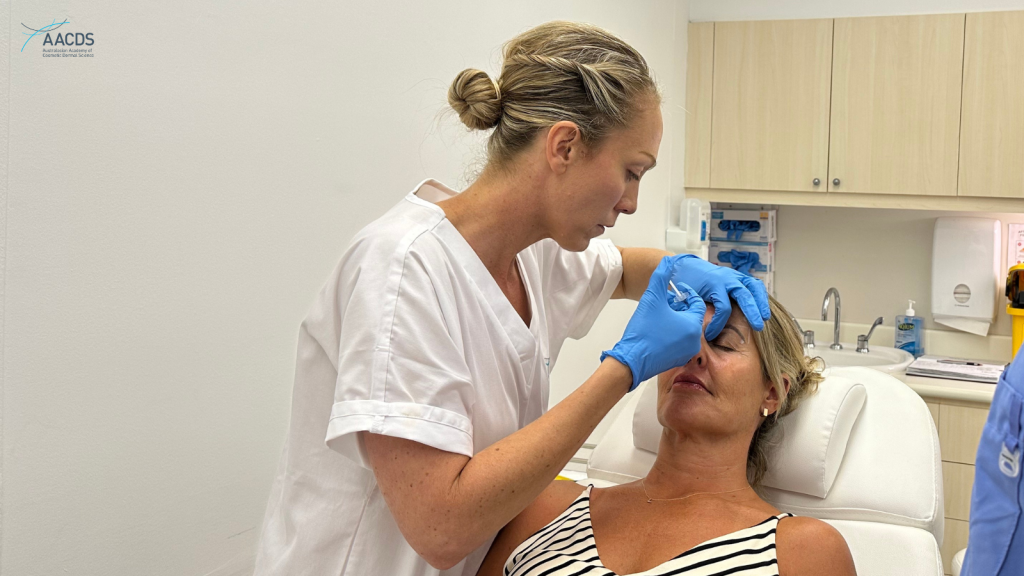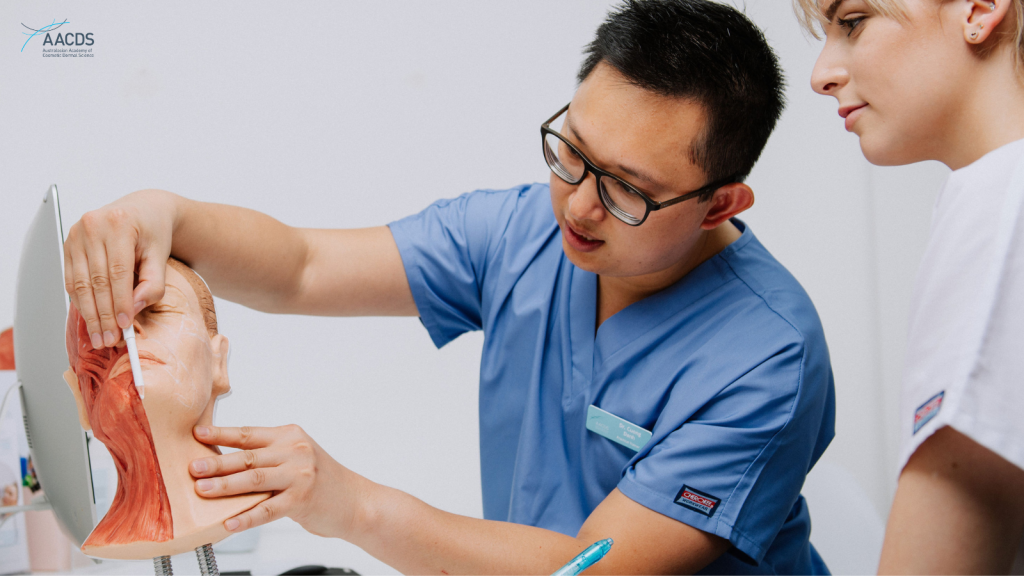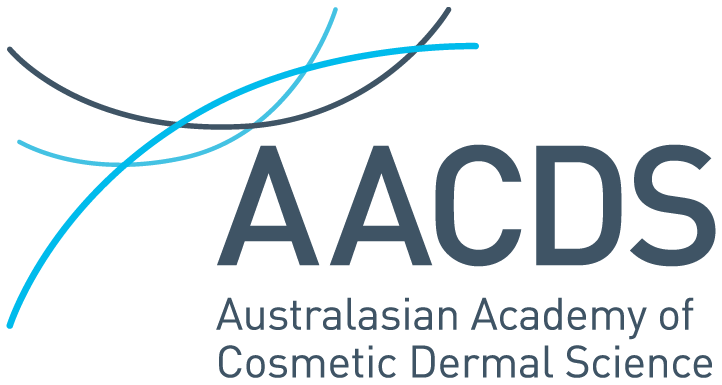Why doctors choose the CPCA and AACDS Graduate Certificate of Cosmetic Medicine

As demand for cosmetic medicine continues to rise across Australia, so too does the risk of underqualified practice. With patient safety and professional standards under growing scrutiny, doctors entering the field need more than a short course to meet regulatory expectations and deliver meaningful patient outcomes. They need rigorous training that builds the skills to deliver safe, ethical, and evidence-based care.
For medical practitioners considering a move into aesthetic medicine, the next step is clear: invest in structured, nationally recognised education backed by leaders in the field.
That’s exactly what the Graduate Certificate of Cosmetic Medicine, launched in partnership with AACDS and the Cosmetic Physicians College of Australasia (CPCA), is designed to offer.
Why the Graduate Certificate of Cosmetic Medicine stands out
The Graduate Certificate of Cosmetic Medicine is Australia’s first nationally accredited postgraduate qualification designed specifically for qualified medical doctors. Recognised as a Level 8 qualification under the Australian Qualifications Framework (AQF), it ticks all the boxes for postgraduate study and gives you the credibility and compliance you need to practise confidently. Created by doctors, for doctors, every component of the course is focused on clinical relevance, safety, and evidence-based practice.
“What we’ve created is essential training for cosmetic physicians. The kind of comprehensive education that, until now, hasn’t been available in a single, unified program,” says Dr Keturah Hoffman, MBBS – Fellow of the CPCA and the Course Coordinator for the Graduate Certificate in Cosmetic Medicine.
Unlike short courses or non-standardised training, this graduate certificate has been rigorously developed and government recognised through the VET sector. All assessments are designed by AACDS to meet the course’s accreditation requirements and, as well as best practice guidelines from AHPRA and the TGA. This structure supports practitioners to develop the knowledge and skills required to meet professional and regulatory expectations in cosmetic medicine.
What’s in the course
The Graduate Certificate of Cosmetic Medicine consists of five units, combining theory and hands-on clinical training tailored for medical doctors upskilling in aesthetic practice:
- Principles of Cosmetic Medicine
Covers governance, ethics, medico-legal responsibilities, marketing compliance, and the scope of practice across cosmetic teams. - Patient Consultation & Assessment
Teaches best-practice consultation, informed consent, documentation, referral processes, and patient management systems. - Cosmetic Dermatology
Focuses on diagnosing skin conditions, recognising systemic links, prescribing treatments, and using resurfacing techniques and non-ionising devices. - Cosmetic Injectables
Develops skills in prescribing and administering neurotoxins and dermal fillers, with emphasis on anatomy, pharmacology, and patient safety. - Infection Control
Ensures compliance with current hygiene standards, combining online learning with practical assessment in clinical settings.
Learning is delivered via online, self-paced modules, with practical training blocks at Aspire Training Clinics in Melbourne, Sydney, Gold Coast and Perth. This blended format allows students to apply their skills under real clinical supervision, then complete any gaps via mentored placements.
“You can’t train someone in a procedure if there’s no patient needing it that day. That’s why we pair the in-clinic component with an industry placement under the guidance of an experienced mentor,” says Dr Hoffman.
Course eligibility and who it’s for
This course is open to:
- Australian-registered medical practitioners (MBBS, MD, etc.)
- International medical graduates, on a case-by-case basis – subject to eligibility and recognition of prior learning
Whether you’re a general practitioner, junior doctor, or specialist looking to diversify your practice, this qualification offers a formalised, clinically robust pathway into cosmetic medicine.
If you’re a dentist or allied health professional, can you enrol?
Not at this time. The course is specifically designed for doctors with general medical training.
CPD recognition for certificate units
Each unit of this course constitutes medical education in the cosmetic field and may be recognised for CPD by some professional organisations. Currently, the CPCA credits each unit with between 50 and 100 hours of study, depending on the content.

Why doctors should upskill in cosmetic medicine
Cosmetic medicine is a clinical subspecialty, and like any medical field, it demands more than a weekend course to practise safely and competently. Choosing a structured, accredited program means you’ll learn what it takes to practise safely, protect yourself professionally, and build a career with long-term credibility.
Here’s why formal training in cosmetic medicine is worth the investment:
- Respond to demand confidently
With injectables among the most requested non-surgical treatments, doctors must understand anatomy, risks, and evidence-based protocols. - Minimise clinical risk
Learn how to prevent, recognise, and manage complications — ensuring safe outcomes for every patient. - Meet AHPRA expectations
Stay compliant with current regulatory requirements, including advertising, prescribing, and informed consent. - Strengthen your professional reputation
Stand out in a competitive field with qualification that reflects your commitment to safety, ethics, and high clinical standards.
“If you’re prescribing treatments, you should understand how they work. One of our students joined the course after realising, while writing scripts, that they didn’t feel confident to perform the procedures they were prescribing,” explains Dr Hoffman.
The value of CPCA membership and ongoing education
The CPCA is the peak body for cosmetic physicians in Australasia, and the Graduate Certificate of Cosmetic Medicine is deeply aligned with its values and standards. While membership isn’t mandatory for enrolment, it offers many benefits, including:
- Access to peer-reviewed education and journals
- Mentorship and professional development events
- Increased recognition within the industry
- Eligibility for CPCA’s registrar training pathway
“Education should be for everyone, but CPCA members gain access to extra resources and are better supported in their professional growth,” says Dr Hoffman.
Ready to advance your career?
The Graduate Certificate of Cosmetic Medicine, offered by AACDS in collaboration with the CPCA, is a benchmark qualification for medical doctors looking to step confidently into the field of aesthetic medicine.
Whether you’re expanding your services, raising patient care standards, or aligning with industry expectations, this course gives you the structure, support, and credibility to move forward with confidence.
Enrol via the CPCA website today.

